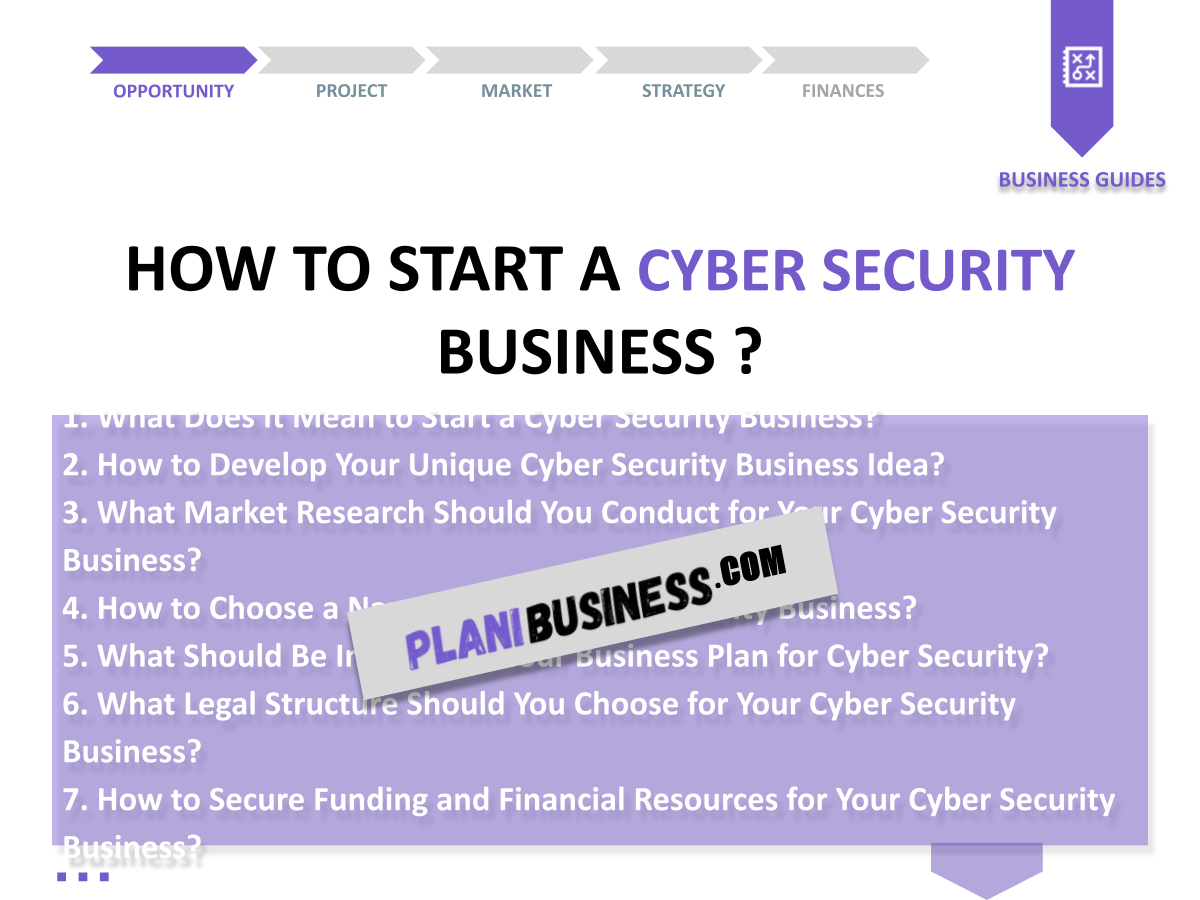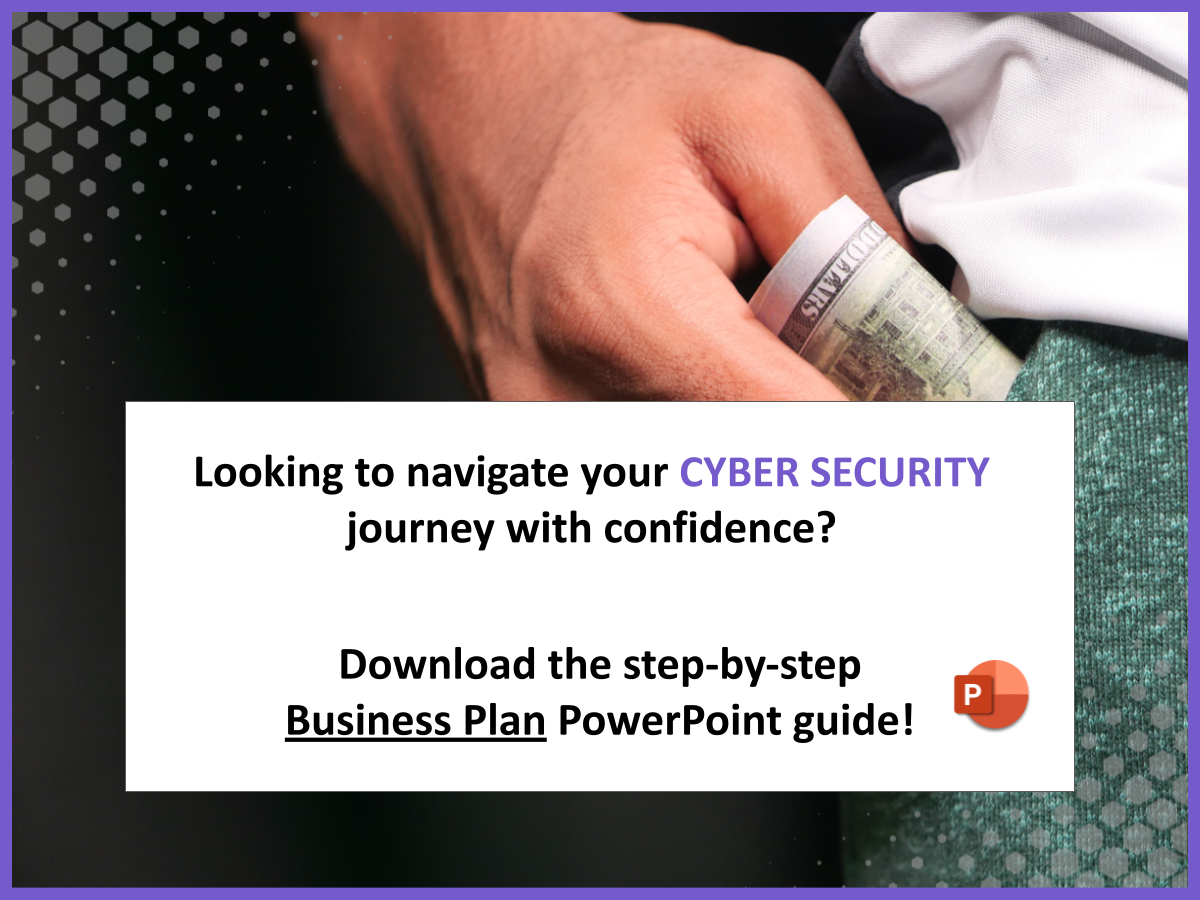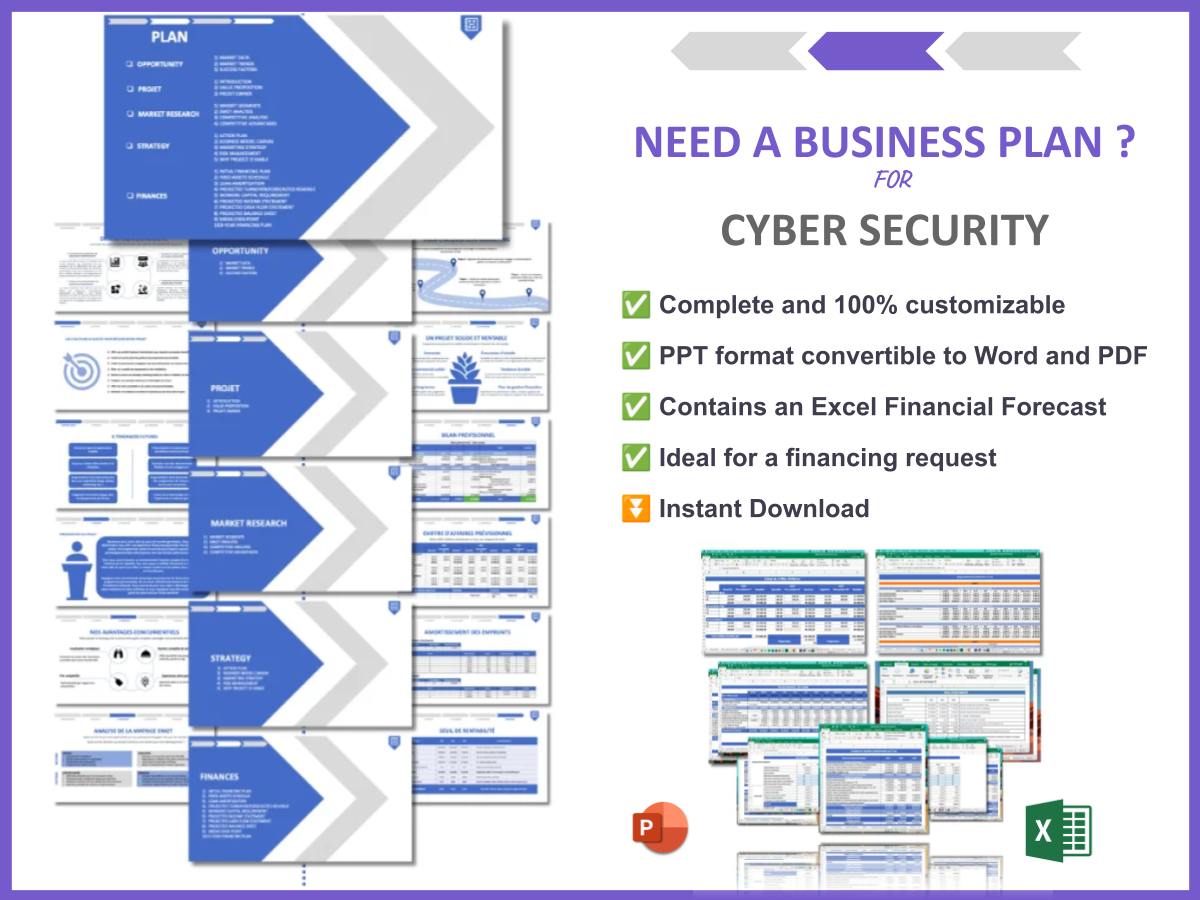Are you thinking about starting a cyber security business? You’re not alone! The demand for cyber security services is skyrocketing, with businesses increasingly aware of the need to protect their digital assets. This booming industry is not just about protecting computers; it’s about safeguarding sensitive information and ensuring compliance with regulations.
In simple terms, starting a cyber security business involves offering services that help organizations prevent, detect, and respond to cyber threats. Whether it’s consulting, training, or managed services, there’s a niche for everyone in this field.
- Understand the landscape of cyber security.
- Identify your target audience.
- Explore various service offerings.
- Learn about the skills and certifications needed.
- Examine potential revenue streams.
- Get inspired by successful cyber security entrepreneurs.
1. What Does It Mean to Start a Cyber Security Business?
Starting a cyber security business is an exciting venture that taps into a critical need in today’s digital world. It means offering services designed to protect organizations from cyber threats, which can range from data breaches to ransomware attacks. As more companies move their operations online, the importance of having robust security measures in place has never been greater.
Consider this: over 60% of small businesses close within six months of a cyber attack. This startling statistic highlights the urgent need for cyber security services. Therefore, if you’re passionate about technology and helping others, this could be the perfect path for you.
To get started, think about the different areas within cyber security you could specialize in. Here are some common service offerings:
- Consulting: Advising organizations on how to improve their security posture.
- Penetration Testing: Simulating attacks to find vulnerabilities.
- Training: Educating employees on security best practices.
Ultimately, your goal is to provide solutions that help businesses stay safe in an increasingly dangerous digital landscape.
2. How to Develop Your Unique Cyber Security Business Idea?
To kick off your journey, you need a solid business idea. This means figuring out what unique services you can offer in the cyber security landscape. Brainstorm areas like penetration testing, compliance consulting, or managed security services. Here are some steps to help you refine your idea:
- Identify Your Strengths: What skills do you bring to the table? This could be technical expertise, knowledge of regulations, or experience in risk management.
- Look at Market Gaps: Are there services that aren’t being offered in your area? Identifying a niche can set you apart from competitors.
- Research Competitors: Check out what others in the field are doing. Understanding their offerings will help you position your services effectively.
Here’s a simple table to illustrate potential service offerings:
| Service Type | Description | Target Audience |
|---|---|---|
| Penetration Testing | Simulating cyber attacks to find vulnerabilities. | Businesses looking to improve security. |
| Security Audits | Assessing current security measures and compliance. | Regulated industries. |
| Training | Educating staff on security best practices. | Companies of all sizes. |
By following these steps, you’ll be well on your way to developing a unique and viable cyber security business idea that meets the needs of your future clients.
3. What Market Research Should You Conduct for Your Cyber Security Business?
Understanding the market is crucial for your success. You need to assess the demand for various cyber security services in your target area. Conducting thorough market research helps you identify potential clients, understand their needs, and stay ahead of the competition.
Here are some steps to guide you through effective market research:
- Surveys and Interviews: Engage with potential clients to gather insights about their security concerns and needs. This direct feedback is invaluable.
- Online Tools: Utilize platforms like Google Trends, SEMrush, or Statista to analyze current trends and demands in the cyber security industry.
- Industry Forums: Join online forums and groups to discuss challenges and solutions with other professionals in the field.
Consider creating a SWOT analysis to better understand your position in the market. Here’s a simple table to illustrate how a SWOT analysis might look for a new cyber security business:
| Strengths | Weaknesses | Opportunities | Threats |
|---|---|---|---|
| Expertise in specific areas | Limited brand recognition | Growing demand for services | Intense competition |
By conducting thorough market research, you’ll be well-equipped to position your cyber security business effectively and tailor your offerings to meet the needs of your target audience.
4. How to Choose a Name for Your Cyber Security Business?
Your business name is your first impression, and it plays a vital role in branding. It should reflect your services and be memorable to potential clients. Think about incorporating terms related to security, trust, and technology. Here are some tips to help you choose the right name:
- Brainstorm Ideas: Gather a list of potential names with friends or colleagues. Don’t hesitate to get creative!
- Check Domain Availability: Make sure the name you choose has an available domain for your website. This is crucial for online presence.
- Pronunciation and Spelling: Ensure your name is easy to pronounce and spell. Complicated names can be easily forgotten.
Additionally, consider the emotional response you want to evoke with your name. A name that conveys reliability and expertise will resonate well with your audience.
Remember, your business name is not just a label; it’s a critical part of your cyber security brand identity that can influence client perceptions and trust.
5. What Should Be Included in Your Business Plan for Cyber Security?
Creating a detailed business plan is essential for your cyber security business. This document serves as a roadmap for your venture, outlining your goals, strategies, and financial projections. A well-structured business plan not only helps you stay focused but also attracts potential investors.
Here are the key components to include in your business plan:
- Executive Summary: A brief overview of your business, including your mission statement and what sets you apart in the cyber security field.
- Market Analysis: Detailed insights about your target market, competition, and industry trends.
- Service Offerings: A clear description of the cyber security services you will provide.
- Marketing Strategies: How you plan to attract clients and grow your business.
- Financial Projections: Forecasts for revenue, expenses, and profitability over the next few years.
I recommend checking out this business plan template for Cyber Security. It’s super detailed and can save you a ton of time!
Having a solid business plan will not only guide your decisions but also instill confidence in potential partners and clients.
6. What Legal Structure Should You Choose for Your Cyber Security Business?
Deciding on a legal structure is critical for your cyber security business. It affects your taxes, liability, and business registration. Understanding the differences between each type will help you make an informed choice that aligns with your business goals.
Here are some common legal structures to consider:
- Sole Proprietorship: The simplest form, where you are the sole owner and responsible for all liabilities.
- Limited Liability Company (LLC): Offers personal liability protection while allowing for flexible management and tax options.
- Corporation: A more complex structure that provides liability protection but requires adherence to more regulations.
Here’s a table comparing the three main types of legal structures:
| Legal Structure | Liability Protection | Tax Implications | Complexity |
|---|---|---|---|
| Sole Proprietorship | No | Personal income tax | Low |
| LLC | Yes | Pass-through taxation | Moderate |
| Corporation | Yes | Corporate tax | High |
Consult with a legal expert to determine the best structure for your specific situation. This decision will have lasting implications on your cyber security business, so it’s important to choose wisely.
7. How to Secure Funding and Financial Resources for Your Cyber Security Business?
Securing funding is often a challenge for new businesses, especially in the cyber security sector, where initial investments can be significant. However, there are several avenues you can explore to find the financial resources necessary to launch and grow your business.
Here are some effective strategies for securing funding:
- Personal Savings: Many entrepreneurs start by using their savings. This shows potential investors that you are committed to your business.
- Bank Loans: Traditional bank loans can be a viable option, but you will need a solid business plan and good credit.
- Investors: Look for angel investors or venture capitalists who specialize in tech startups. Be prepared to pitch your business idea effectively.
- Grants: Research grants specific to tech and cyber security businesses. Many government and nonprofit organizations offer funding opportunities.
- Crowdfunding: Platforms like Kickstarter or Indiegogo allow you to raise funds from a large number of people, often in exchange for early access to your services.
When seeking funding, it’s crucial to have your financial projections ready. Here’s a simple breakdown of what you should prepare:
| Financial Document | Description |
|---|---|
| Startup Costs | Detailed list of all initial expenses, including equipment, software, and marketing. |
| Revenue Projections | Estimates of how much income you expect to generate in the first few years. |
| Cash Flow Statement | A projection of your cash inflows and outflows to ensure you can cover expenses. |
By exploring these funding options and preparing the necessary financial documents, you’ll be better positioned to secure the resources needed to launch your cyber security business successfully.
8. How to Register Your Cyber Security Business Officially?
Registering your business is a key step in making your cyber security venture official. This process involves selecting your business name and completing the necessary paperwork with your local government. Here’s how to navigate this essential phase:
- Choose a Business Name: Make sure it aligns with your brand identity and isn’t already in use.
- Check Local Regulations: Different states or countries have specific requirements for business registration. Research these thoroughly.
- File the Necessary Paperwork: This usually includes forms for business registration, tax identification, and possibly a trademark application.
- Obtain Necessary Permits: Depending on your location and the services you offer, you may need specific licenses or permits to operate legally.
Keep in mind that maintaining compliance with local laws is crucial for the longevity of your cyber security business. Failing to register properly can lead to fines and operational challenges down the line.
Once registered, you’ll have the legal standing to operate your business and start building your client base.
9. What Tax Identification Numbers, Licenses, and Permits Do You Need?
As a new business owner in the cyber security sector, understanding the legal requirements for operating is essential. Depending on your location and the specific services you offer, you may need various tax identification numbers, licenses, and permits to operate legally.
Here’s a breakdown of what you might need:
- Employer Identification Number (EIN): This is required if you plan to hire employees or operate as a corporation or partnership. It’s essentially your business’s Social Security number.
- State Tax ID: Depending on your state, you may also need a state tax identification number for sales tax and other tax-related purposes.
- Business Licenses: Some localities require specific business licenses to operate, especially in regulated industries like cyber security.
- Professional Certifications: Depending on your services, certifications such as Certified Information Systems Security Professional (CISSP) may be necessary to establish credibility.
Here’s a table summarizing the common requirements:
| Requirement | Description | Who Needs It? |
|---|---|---|
| EIN | Federal tax ID for business. | All businesses with employees. |
| State Tax ID | State-level tax identification. | Businesses operating in specific states. |
| Business License | Local permission to operate. | Varies by locality and business type. |
Make sure to check with your local government and relevant regulatory bodies to ensure compliance. Having the right licenses and permits will not only keep you legal but also instill confidence in your clients.
10. How to Set Up Your Financial Management Systems?
Managing your finances properly is crucial for the sustainability of your cyber security business. A well-organized financial management system will help you keep track of income, expenses, and taxes, ensuring that you remain profitable and compliant with regulations.
Here are some steps to set up an effective financial management system:
- Choose Accounting Software: Invest in reliable accounting software like QuickBooks, FreshBooks, or Xero. These tools can automate many processes and make tracking finances easier.
- Hire a Bookkeeper: If your budget allows, consider hiring a bookkeeper to manage your finances. This can save you time and reduce errors.
- Set Up a Separate Business Bank Account: Keeping your business and personal finances separate will simplify tax preparation and provide a clear view of your business’s financial health.
Additionally, here’s a list of financial documents you should maintain:
- Income Statements: These show your revenue and expenses over a specific period.
- Balance Sheets: A snapshot of your business’s assets, liabilities, and equity at a given time.
- Cash Flow Statements: These track the flow of cash in and out of your business, helping you manage liquidity.
By establishing a solid financial management system, you’ll be better equipped to make informed decisions, manage your cash flow, and ensure the long-term success of your cyber security business.
11. How to Establish Your Brand Identity in Cyber Security?
Your brand identity is critical in distinguishing your cyber security business from competitors. It encompasses everything from your logo and color scheme to your messaging and overall reputation. A strong brand identity helps build trust with potential clients and establishes your authority in the industry.
Here are some key components to consider when developing your brand identity:
- Logo Design: Invest in a professional logo that reflects your brand’s values and mission. It should be simple, memorable, and versatile.
- Color Scheme: Choose colors that convey security and professionalism. Blues and greens are often associated with trust and safety in the tech industry.
- Consistent Messaging: Ensure that your messaging across all platforms (website, social media, marketing materials) is consistent and aligns with your brand values.
Additionally, consider how you want your audience to perceive your brand. Here’s a table summarizing elements that contribute to brand perception:
| Brand Element | Impact on Perception |
|---|---|
| Logo | First impression; conveys professionalism. |
| Website | Reflects credibility and expertise. |
| Customer Service | Builds trust and loyalty. |
By focusing on these elements, you can create a strong brand identity that resonates with your target audience and enhances your presence in the cyber security market.
12. What Are the Best Marketing Strategies for Your Cyber Security Business?
Marketing is essential for attracting clients to your cyber security business. With the right strategies, you can effectively reach your target audience and establish your reputation in the industry. Here are some effective marketing strategies to consider:
- Content Marketing: Create valuable content that educates your audience about cyber security issues. This can include blog posts, whitepapers, and eBooks.
- Search Engine Optimization (SEO): Optimize your website for search engines to increase visibility and attract organic traffic. Focus on keywords relevant to your services.
- Social Media Marketing: Engage with your audience on platforms like LinkedIn, Twitter, and Facebook. Share insights, updates, and industry news to build a following.
- Email Marketing: Use targeted email campaigns to nurture leads and keep existing clients informed about your services and industry trends.
Additionally, attending industry conferences and networking events can help you connect with potential clients and partners. Here’s a list of potential marketing channels:
- Webinars: Host informational sessions on cyber security topics to showcase your expertise.
- Online Ads: Use Google Ads or social media advertising to target specific demographics.
- Partnerships: Collaborate with other tech firms to cross-promote services.
By employing a mix of these marketing strategies, you can effectively promote your cyber security business and attract a steady stream of clients.
13. How to Assemble Your Team for Your Cyber Security Business?
As your cyber security business grows, building a competent team becomes crucial. A skilled team will not only enhance your service offerings but also contribute to the overall success of your company. Here are some steps to consider when assembling your team:
- Define Roles and Responsibilities: Clearly outline the positions you need to fill, such as security analysts, penetration testers, and compliance specialists.
- Look for Diverse Skills: Seek individuals with varying expertise, including technical skills, customer service experience, and project management capabilities.
- Invest in Training: Provide ongoing training and professional development opportunities to keep your team updated on the latest trends and technologies in cyber security.
Additionally, consider the company culture you want to foster. Here’s a table summarizing the key attributes to look for when hiring:
| Attribute | Importance |
|---|---|
| Technical Skills | Essential for delivering quality services. |
| Communication Skills | Important for client interactions and teamwork. |
| Problem-Solving Ability | Crucial for addressing security challenges. |
By carefully selecting and nurturing your team, you’ll create a strong foundation for your cyber security business, enabling you to deliver exceptional services and build lasting client relationships.
Conclusion
Starting a cyber security business can be a rewarding venture, especially given the increasing demand for protection against cyber threats. By following the steps outlined in this guide—from developing a unique business idea to establishing your brand identity—you’ll be well-equipped to navigate the complexities of the industry.
Remember, the key to success lies in thorough research, strategic planning, and building a competent team. As you embark on this journey, consider exploring additional resources to enhance your knowledge. For instance, check out our article on how to create a SWOT Analysis for Cyber Security to better understand your business landscape. Additionally, our guide on How to Start a Cyber Security Marketing Plan? With Example can help you effectively promote your services and reach your target audience.
With dedication and the right strategies, you can build a successful cyber security business that not only thrives but also makes a meaningful impact in protecting individuals and organizations from cyber threats.
FAQ
- What is the first step to start a cyber security business?
Begin by developing a clear business idea that identifies your target market and the specific cyber security services you plan to offer. - How much does it cost to start a cyber security business?
Startup costs can vary widely depending on the services offered, but you should budget for equipment, software, and marketing expenses. - Do I need a certification to start a cyber security business?
While not always required, certifications such as CISSP or CEH can enhance your credibility and attract clients. - What services can I offer as a cyber security business?
Common services include penetration testing, security audits, compliance consulting, and managed security services. - How can I market my cyber security services?
Utilize a mix of content marketing, SEO, social media, and networking to effectively promote your cyber security business. - What legal requirements do I need to fulfill?
You’ll need to obtain an EIN, register your business, and check for any specific licenses or permits required in your area. - How can I find clients for my cyber security business?
Networking, online marketing, and attending industry events are great ways to connect with potential clients. - What should be included in my business plan?
A solid business plan should include an executive summary, market analysis, service offerings, marketing strategies, and financial projections. - How can I keep my cyber security skills updated?
Participate in ongoing training, attend workshops, and stay informed about the latest trends and threats in the cyber security field. - Is there a demand for cyber security services?
Yes, the demand for cyber security services is growing rapidly as more organizations recognize the need to protect their digital assets.







